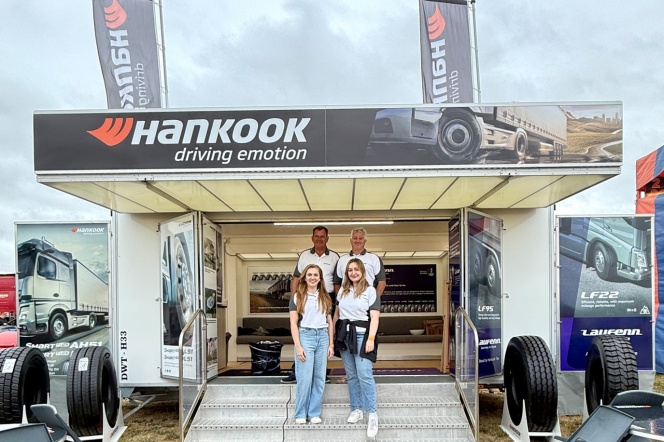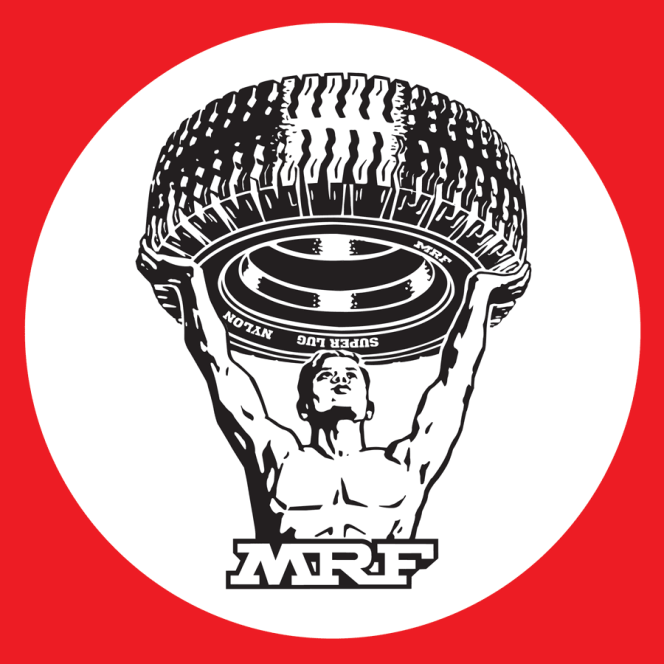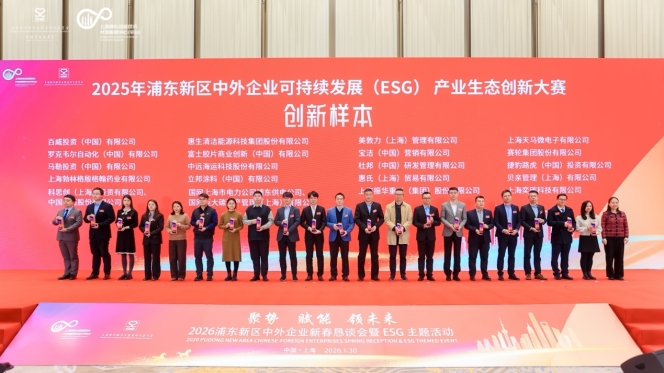
The global tyre industry has evolved on all fronts. Tyre manufacturers faced a constant trade-off between meeting productivity goals and increased requirements from the customers and new regulations. Hauvala and his colleagues realised that tyre manufacturers could no longer do everything by themselves in the changing market environment: to design tyres, tyre factories and manufacturing processes in a way that would support the new demands for efficiency. Instead, they should be able to concentrate on their core business. “We had a great vision with true market potential, plus an attractive option to reform the tyre industry,” said Hauvala.
‘We’, that is a key founding team of twelve tyre technology professionals. Hauvala uses the plural form throughout the interview, pinpointing the obvious fact that you cannot change the industry alone. “It is all about ‘collaboration’,” Hauvala stresses.
In 2011, the tyre industry, well known for its strict conventions, was however not ready and waiting for a changemaker. It took long before tyre manufacturers accepted the new service concept and realized its potential business value. “It was the depth of our expertise that convinced the first customers. The fact that we knew the tyre industry from inside out and could provide the whole package under one roof,” Hauvala says
Today, Black Donuts is an established and recognised technology house providing innovative solutions for tyre manufacturers. The concept of turnkey solutions has remained as the company’s key strategic principle. Elaborating the solultion provided by Black Donuts, Hauvala, said, “We are a full-service technology house providing the entyre solutions for designing, building, and running a smart and sustainable tyre plant with maximized productivity and best-in-class products.”
The company’s customer portfolio includes 20 out of the top 25 tyre manufacturers, which a glaring sign of competence and an option to reform the industry. “You need references to be convincing. And you need a network of partners sharing your vision of a brighter future for making it happen,” Hauvala says.
Changes And Challenges In Tyre Production
In last ten years, according to Hauvala, tyre manufacturing has witnessed the diverse challenges, including complex product mixes, shorter product runs, and the pressure for faster deliveries – a myriad of different demands affecting day-to-day factory operation. “ Things are changing at an accelerating pace, and there are no signs of slowing down. From the tyre manufacturers’ perspective, the operational environment has become complicated,” thinks the Black Donuts CEO.
Focusing on core competencies is a clear industry trend. Other operations outside manufacturing high-end products are increasingly being outsourced – aligned with Black Donuts’ original business idea.
Nevertheless, all players regardless of their area of specialization benefit from partnering with a company that understands the entire sector. In the era of ever-tightening cost and efficiency targets, choosing a partner to lead and actualize major investment projects, such as setting up a new factory, has become a mainstream option. “Tyre manufacturers desire a proven and effortless end-to-end service, provided by professionals, whose core competence is to plan and manage investment projects,” he says.
Assuming total responsibility for the production design, ramp-up, and material handling, Black Donuts controls that every detail in the production aligns with the customer’s goals. A shortened payback time creates concrete extra value for the customer. Hauvala says, “Our finetuned processes and advanced technology tools enable a smooth ramp-up. The reduced time-to-market generates faster and greater ROI.”
The rise of automation is another key trend in the tyre manufacturing. Black Donuts helps tyre manufacturers improve productivity and take the required technology leaps towards smart factory efficiency. The company has developed its own MES concept that gives multiple benefits for tyre manufacturers, such as improved insight and the potential for full traceability of tyres in production. The new plant concept also enables a remarkable decrease in stock levels and factory manning. “ In our latest factory design plans, the required manning is only half of the level in the first plans ten years ago,” tells Hauvala.
Also, the end-customer demands are higher now than a decade ago, forcing tyre manufacturers to rethink their business models to live up to the growing expectations. In the concept of Black Donuts, the manufacturing process is optimized, flexible and efficient despite the increased number of simultaneous products and sizes in production. “With us, the manufacturing process gets new flexibility that enables shorter delivery times,” Hauvala promises.
The Rise Of New Brands
During the past decade, the tyre industry has witnessed a geographic change. The number of brands in the market is growing, just like in any other industry offering low-involvement consumer products. Established international brands get new challengers from local manufacturers offering good quality for moderate prices. “ The interest in tyre production raises its head particularly in the countries of fast economic growth with own raw material sources,” says Hauvala.
Black Donuts has developed a tailored turnkey service for the industry newcomers. It covers the entire solution from A to Z for designing, building and running a tyre plant. “We step in on day one and work hands-on with the customer throughout the process from feasibility study to the market entry. Or beyond, keeping the production and products always in the frontline of tyre technology,” explains Hauvala.
Today, Black Donuts is a genuinely international company with customers on almost every continent except Australia, where there is no domestic tyre manufacturing. “ We don’t have any borders in our minds, but the whole world is our market area. We are fully open to all directions,” says Hauvala.

Quality Leap In Tyre Development
According to Hauvala, a quality leap is the single biggest change in tyre development, driven by a continuing high-performance trend and technological advances. “ The quality of tyres is remarkably higher today,” adds Hauvala.
Black Donuts’ customers get access to the latest technology, the smartest innovations, and the most advanced materials. All the best-in-class product qualities, such as superior performance, lowest rolling resistance and a quiet ride, are at hand. Within the past ten years, the debate about tyre qualities has increasingly shifted to the total environmental impact of the tyre. Parallel to tightening regulations on emissions and rolling resistance, tyre manufacturers are being pushed to enhance the use of biomaterials in tyre compounds and to minimize waste.
“The tyre industry has made remarkable progress in reducing waste, yet compared to many other industries, the use of biomaterials is still in its infancy,” Hauvala admits. He anticipates new regulations to emerge concerning the recyclability of tyres.
In-Built Sustainability
Improvements in tyre manufacturing and development have accelerated over the last decade, spurred by the sharpened focus on environmental issues. The demands for sustainability now concern the entire industry from products to production.
At Black Donuts, sustainability is a strategic driver. The company not only contributes to sustainability in its own operations but also supports its customers and partners in the move. “The ideas of circular economy are inherent in our business philosophy. All our solutions focus on manufacturing excellence and resource efficiency, optimizing biomaterial use, minimizing emissions and maximizing recyclability,” says Hauvala.
Enjoying a comprehensive view of the tyre industry, Black Donuts has a great opportunity to improve overall branch sustainability. The company runs several major investment projects that aim at making the tyre industry greener – one tyre at a time, like Hauvala says. “All our most important development projects support a more sustainable tyre industry.”
Recently, the company developed a new stud concept that remarkably reduces the negative side effects of safe winter driving. The new, patented technology tackles the environmental challenges of studs, such as road wear, pollution, and noise. Revealing a bit of the company’s future aspirations, Hauvala reports that Black Donuts is also developing a high-end winter tyre for electric cars, doing research in biomaterials, and investigating the usability of recovered carbon black received from an integrated pyrolysis solution. “We are getting closer to zero-emission factories, although it will require dedication, engagement, and collaboration,” Hauvala concludes.
Future-Proofing The Industry
Today, Black Donuts employs over 60 professionals with skills that cover all areas of tyre manufacture and tyre technology. During the 10-year journey, the company has grown, reinforced its skills and recruited new talents from areas outside its original core competences. Hauvala praises the employees for making it possible to celebrate such a significant milestone. “Our team is exceptional. We have great people from diverse backgrounds, working together for a common goal and inspiring each other to make a difference,” says Hauvala proudly.
Although the company has rapidly grown, it has managed to preserve the flexible and agile corporate culture from the early days. In a recent employee survey, team spirit was named as the strongest motivator. “Team spirit is our internal source of power and a strong pillar supporting the whole business.”
According to Hauvala, every team member at Black Donuts shares the same value-adding commitment and passion to help customers and to make the tyre industry an exemplary branch that considers the generations to come. He encourages all players in the industry to prepare for the future, starting today. “ We know the best practices, future challenges, and opportunities in the tyre industry. For us, it is quite simple to evaluate if a tyre business is future-proof or not. Is yours?” (TT)
Hankook Confirms Partnership As Sponsor For Convoy Truck Shows 2026
- By TT News
- March 04, 2026

Hankook has confirmed its partnership for the 2026 Convoy Truck Shows, stepping in as an infield partner for the series, which runs in tandem with the British Truck Racing Championships (BTRC). These events offer a distinctive fusion of high-octane track action and the immersive atmosphere of a large-scale truck gathering. This renewed involvement deepens Hankook’s footprint at some of the most eagerly awaited dates on the UK motorsport and haulage calendar.
The season’s schedule commences with Convoy on the Plain on 16–17 May, followed by Convoy Cymru on 20–21 June. The flagship gathering, Convoy in the Park, will round off the summer season on 8–9 August. Attendees can look forward to a full agenda of British truck racing, breathtaking stunt performances, live entertainment and attractions for all ages, alongside a remarkable display of working vehicles, custom rigs and pristine show trucks. Mirroring its sponsorship of the Devon Truck Show, Hankook’s partnership with the Convoy series supports its wider mission to generate substantial donations for local charitable causes and community groups, positioning it as an event with purpose beyond spectacle.
At each of these shows, Hankook will spotlight its cutting-edge range of commercial and consumer tyres. Key exhibits will feature the SmartFlex AH51 for steer axles and the SmartFlex DH51 for drives, both engineered for long-haul and regional use and prized for superior traction and extended durability. Also on show will be the SmartFlex TH31 trailer tyre, the Vantra Transit summer tyre for commercial vans and several models from the Laufenn portfolio, such as the LZ22 all-weather drive tyre, the LF21 all-position tyre and the robust LF95 trailer tyre.
Rounding out the display are the Dynapro HP2 all-season SUV tyre and the iON evo SUV, a cutting-edge summer tyre purpose-built for electric vehicles, underlining Hankook’s forward-looking approach to sustainable mobility. Through its involvement in the Convoy Truck Shows, Hankook reinforces its dedication to the haulage industry by engaging directly with drivers, fleet operators and enthusiasts, showcasing tyre innovations focused on safety, efficiency and peak performance, all while actively contributing to valuable community initiatives.
Event Director Mike Quartley said, "We’re thrilled to have Hankook Tyre UK return as an official sponsor of the Convoy Truck Shows. After the success of last year’s collaboration, continuing the partnership was an easy decision for us. Hankook’s commitment to the industry and to our events adds real value across the board – from contributing to the scale and quality of the events to elevating the atmosphere and experience for our audience. We’re proud to be building on this relationship as the Convoy series continues to grow.”
- Tire Technology Expo 2026
- 2026 Tire Technology International Awards
- BioButterfly Project
- Twaron Next
- Lunar Airless Wheel
- Primacy 5 Energy
Tyre Industry Celebrates Innovation And Sustainability At 2026 Tire Technology International Awards
- By TT News
- March 04, 2026

The tyre industry gathered to honour outstanding innovation and individual accomplishment over the past year during the Tire Technology Expo 2026 held in Hannover. The Tire Technology International Awards, spanning 13 categories, recognised both technological progress and the commitment to a more sustainable future within the tyre sector. Organised by the Tire Technology International magazine, the winners were selected by an independent panel of journalists and technical experts.
Sustainability was a dominant theme, highlighted by three distinct environmental awards. Bridgestone received the award for tyre design innovation, celebrated for developing a truck tyre composed of 70 percent recycled and renewable materials, a notable industry milestone. In manufacturing, Continental was acknowledged for its significant strides in reducing freshwater consumption during production with the Environmental Achievement of the Year – Manufacturing award. The Environmental Achievement – Industry Contribution award went to the BioButterfly project, a collaborative effort involving Michelin, IFP Energies Nouvelles and Axens. This initiative was praised for creating bio-based butadiene from bioethanol, presenting a credible substitute for fossil fuel-derived materials and demonstrating strong potential for immediate industrial application.
Further technical achievements were recognised across several categories. Flexsys earned the Chemicals and Compounding Innovation of the Year award for developing the first practical alternative to the antioxidant 6PPD after extensive research. Teijin Aramid was honoured with the Materials Innovation of the Year award for industrialisation of its high-performance Twaron Next para-aramid fibre. A collaborative R&D breakthrough by Goodyear and TNO, which integrates tyre intelligence directly into a vehicle's automatic emergency braking systems to enhance safety, won the R&D Breakthrough of the Year award. In manufacturing equipment, Comerio Ercole’s advanced modular calendering line, Zeus, won the Tire Manufacturing Innovation of the Year award. Uzer Makina, a long-time finalist, was finally named Tyre Industry Supplier of the Year.
The event also celebrated conceptual and product excellence. Michelin had a particularly successful evening, first winning the Tire Concept of the Year award for its Lunar Airless Wheel, designed to withstand the extreme conditions on the moon. The company then claimed the highly anticipated Tire of the Year award for its Primacy 5 Energy, a tyre noted by the jury for achieving top EU label ratings in most sizes while offering improved longevity and reduced emissions compared to its predecessor. In the final major category, Continental was named Tire Manufacturer of the Year for the second consecutive year and the fifth time overall, following a review of the top manufacturers' yearly contributions.
The awards also highlighted personal achievements within the field. The Young Scientist Prize for 2026 was presented to Max Dixey, a PhD student at Queen Mary University of London, for his compelling presentation on the effects of carbon black activators. Finally, a Lifetime Achievement Award was bestowed upon Michelin’s Pascal Prost. A veteran engineer, researcher and long-time contributor to both the conference and the awards jury, Prost was celebrated by peers and colleagues for his enduring and significant impact on the tyre industry.
Matt Ross, Chairman of the awards and Editor-in-Chief of Tire Technology International, said, “As is now becoming the norm, this year’s awards were incredibly close. Continental and Michelin have picked up multiple awards and should be highly commended, but I’m also happy to see such an array of winners across the whole range of categories. The level of innovation on display across the tyre sector is staggering, and I hope that this year’s awards have captured even a hint of the groundbreaking work taking place to move this industry forward.”
On Frost’s achievement, Ross said, “For as long as I have worked on Tire Technology International and these awards, Pascal has been a valued contributor, a hugely appreciated advisor – and a wonderful sounding board. I would like to join with his peers and friends from across the industry in celebrating his phenomenal contribution to the tyre business.”
MRF Signs MoU With Tamil Nadu For Greenfield Plant At Sivaganga
- By TT News
- March 04, 2026

MRF has announced a significant move to expand its manufacturing footprint in southern India. The company revealed that it has signed a non-binding memorandum of understanding (MOU) with the Tamil Nadu Government, facilitated through the state’s nodal investment promotion agency, Guidance. This preliminary agreement outlines the company’s intent to establish a greenfield manufacturing unit dedicated to the production of automotive tyres and related ancillary products. The proposed facility is planned for location within the SIPCOT Industrial Park situated in the Sivaganga District of Tamil Nadu.
As the agreement is currently non-binding, its progression to a final commitment is contingent upon several conditions. These include the Tamil Nadu government’s sanction of a bespoke incentive package, the provision of necessary infrastructure, the allotment of land and the securing of all requisite statutory approvals in accordance with applicable state laws.
According to the official statement released by MRF, the project, upon receiving all clearances and moving forward, envisions a substantial capital outlay. The estimated investment for this venture is projected to be approximately INR 53 billion, with the capital expenditure to be phased over a 12-year period. Beyond the financial injection into the region’s economy, the initiative is also anticipated to be a major source of employment, with expectations of creating direct job opportunities for around 1,000 individuals.
- Sailun Group
- Sustainable Development (ESG) Industrial Ecosystem Innovation Competition
- Vale
- Mining Tyres
Sailun Group Honoured With ‘Innovative Model’ Award At Shanghai ESG Competition
- By TT News
- March 04, 2026

The second Sustainable Development (ESG) Industrial Ecosystem Innovation Competition for Chinese and Foreign Enterprises in Shanghai’s Pudong New Area recently concluded, with Sailun Group emerging as a distinguished honouree. Recognised for its collaborative ESG efforts with Vale, a global leader in metal and mining, Sailun received the prestigious ‘Innovative Model’ award, standing out as the sole tire company to achieve this recognition.
Organised jointly by the Shanghai Pudong Foreign-Invested Enterprises Association and the Shanghai Pudong Domestic-Funded Enterprises Association, the competition welcomed participation from companies registered and operating in the area, along with their partners. Invited by Vale Metals (Shanghai), Sailun took an active role by meticulously organising and presenting its innovative achievements in sustainable development. Through a structured application process highlighting solid practices and creative excellence, the company successfully secured the award.

Vale, one of the world’s foremost iron ore producers, maintains a longstanding strategic partnership with Sailun. Driven by a mutual dedication to sustainable supply chains, the two organisations have intensified collaboration, particularly in mining tyre supply. By integrating Sailun’s low-carbon tyre technologies, they inject environmental vitality into operations while enabling Vale to achieve refined efficiency through cutting-edge solutions. Their partnership exemplifies a synergistic model that harmonises efficiency, safety and low-carbon practices, serving as a standout case of ESG-driven empowerment across the industrial chain.







Comments (0)
ADD COMMENT